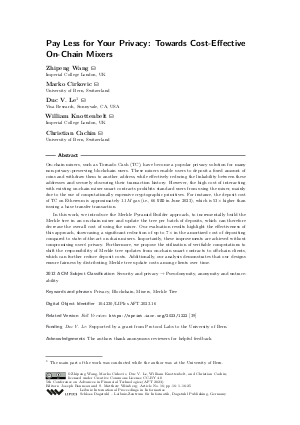LIPIcs.AFT.2023.16.pdf
- Filesize: 1.28 MB
- 25 pages

 Creative Commons Attribution 4.0 International license
Creative Commons Attribution 4.0 International license



























Feedback for Dagstuhl Publishing